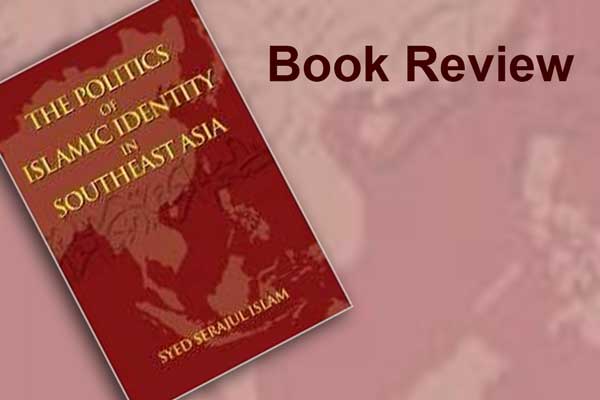Syed Serajul Islam, The Politics of Islamic Identity in Southeast Asia (Singapore: Thomson, 2005). 204 pages. ISBN: 981-254-532-8, 204 PP.
This article was printed in Message Int. January/February 2005 edition.
In recent decades, the world has witnessed a surge of various types of religious revivalism and awareness, some of which have been violent in nature and character. Many of these movements are highly political in nature and approach, and some of them have considerable implications and ramifications for national, regional, and global politics. As a result, many political scientists and scholars have increasingly looked at these religious movements’ multidimensional aspects. Among them is Dr. Syed Serajul Islam, a political science professor (Lakehead University, Canada), who has written an interesting, informative and, above all, well researched and documented books on this relatively recent and topical issue. In fact, this book is a lucid analytical examination of politics of Islamic identity in Southeast Asia and its long-term implications.
The author begins with an overview of theoretical perspectives, which he then follows by an insightful introductory discussion of Islam and Muslim society in Southeast Asia. Against this background, he carefully examines various dimensions of the politics of Islamic identity in the Philippines, Indonesia, Thailand, Myanmar (Burma), and Malaysia. In the conclusion, he presents a comparative analysis of all these movements, as well as thoughtful recommendations for conflict resolution in the above countries. These recommendations provide both policymakers and public policy students with food for serious thought and reflection.
The quality of this study was considerably increased by the author’s decision to discuss these movements from both historical and contemporary perspectives and experiences. As a result, readers who are not intimately familiar with Southeast Asian politics in both the regional and the global contexts can acquire an adequate understanding of the politics of Islamic identity in a relatively easy manner. His account of these movements’ history, dynamics, and management, as well as pertinent events, is a welcome addition to the existing literature in this field. In addition, his provision of some useful and relevant primary sources (documents) at the end of the book, as well as a comprehensive bibliography, will be of great use to those who want to pursue their interest in the politics of separatism, in general, and in Muslim politics in Southeast Asia, in particular.
Altogether, this is an excellent study of the dynamics and intricacies of politics of Islamic identity and its strategies in Southeast Asia. It should be required reading for all students of Southeast Asian politics.






